24. Eternity and a Day (1998)
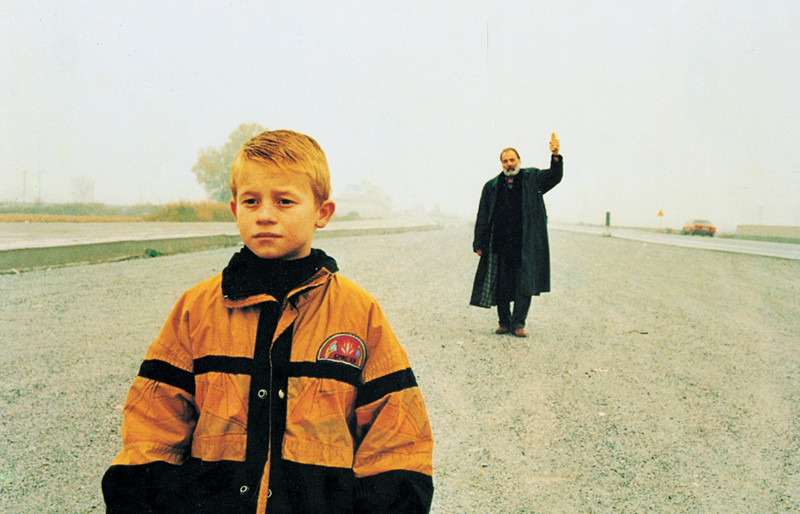
Some people are eternally just too much for the room. Included in that group is surely the late Theo Angelopoulous, arguably Greece’s greatest film maker (and yes, that includes politically-themed director Costa-Gavras, whose intentions are often better than his results). Cerebral, adroit, and individualistic, Angelopoulous was never destined to be flavor of the month.
To this day, even people who are knowledgeable about film and seek out the best the medium has to offer have little to no knowledge of this artist. Like many of the best film makers of serious intent, a Angelopoulous film is stately, composed, unhurried and devoid of sensationalism. A typical effort would contain an astonishingly small number of camera set-ups but each shot would be intricately composed and the action within it carefully choreographed.
Out of a rather small but excellent filmography, his great career moment may well be the award winning Eternity and a Day. It won both the Palme D’Or and the prize for best ethical film at Cannes and many Greek film awards but, typically, barely made a ripple in the west. (Many reviewers snarkily commented that the title could not be more accurate.)
The plot concerns a successful poet (the great German actor Bruno Ganz), who is dying of a terminal illness. As he tries to get old business concluded and relationships summed up, he finds that his life is somewhat over already but he also encounters a young boy who is also in a difficult situation. He tries to help the boy but he sees how limited an individual’s power may be in the end.
This is a thoughtful and touching film but not an easy one. This material could be easily sentimental but that is not what the film is trying to achieve. For the viewer willing to dig, it hits a deeper nerve.
25. Insomnia (1997)
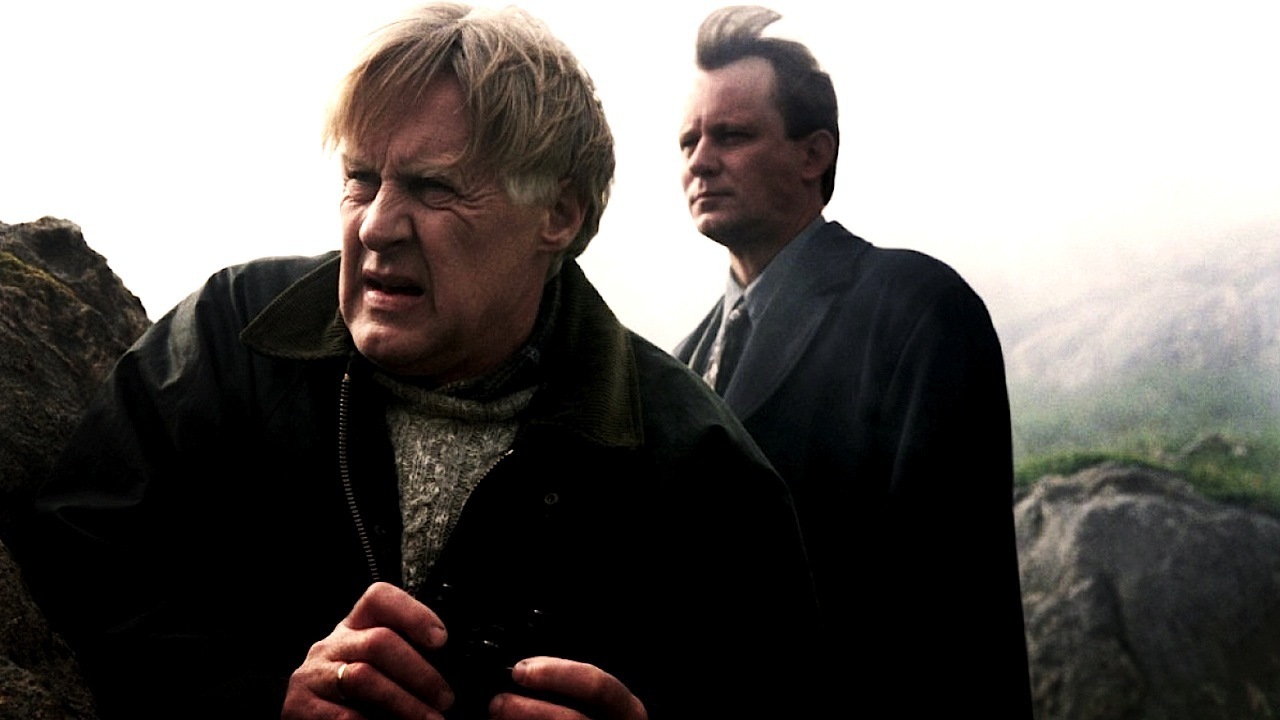
One profound thing which US critics and audiences had to largely learn from European film culture was the appreciation of genre cinema.
While many in the US thought of such films as popcorn flavored junk for decades, Europeans had a respect for genre efforts which displayed a sense of craft and used various genres as vehicles in order to explore the human condition in extreme circumstances. An excellent example of this is the Norwegian thriller Insomnia, which also functions as an expert study of a character mentally and emotionally unraveling.
The film, which was both written and directed by Erik Skjoldbjærg, details how a disgraced Swedish police detective (Stellan Skarsgard, at the start of his international career and showing why he was able to make the big move), attempting to recover from a bad turn of events, journeys to a very small rural town just outside the Arctic circle, where the vicious murder of a young girl has taken place.
It soon becomes apparent the killer is a local big wig, but he looks to be beyond the law’s reach. During an attempted ambush the detective accidently kills his nearing-retirement partner, which he tries to cover up. For the balance of the film the man struggles to bring justice to the killer while avoiding it for himself.
This might have been a simple crime story but the look inside the mind of the unhinged protagonist (whose insomnia in the sleepless land of the midnight sun indicates his moral decay) makes it special. The film doesn’t go for easy answers or a tidy ending.
A telling contrast is a comparison to the 2002 Hollywood remake directed by the redoubtable Christopher Nolan and starring three Oscar winners, Al Pacino, Hillary Swank (in a heroic role minted for that version) and Robin Williams. It wasn’t bad or negligible (and it did well enough with critics and at the box office) but it was conventional and tidy, not edgy and disturbing, like the original. Sadly this did not open the international door for the film maker but it still remains a great moment for him.
26. Satantango (1994)
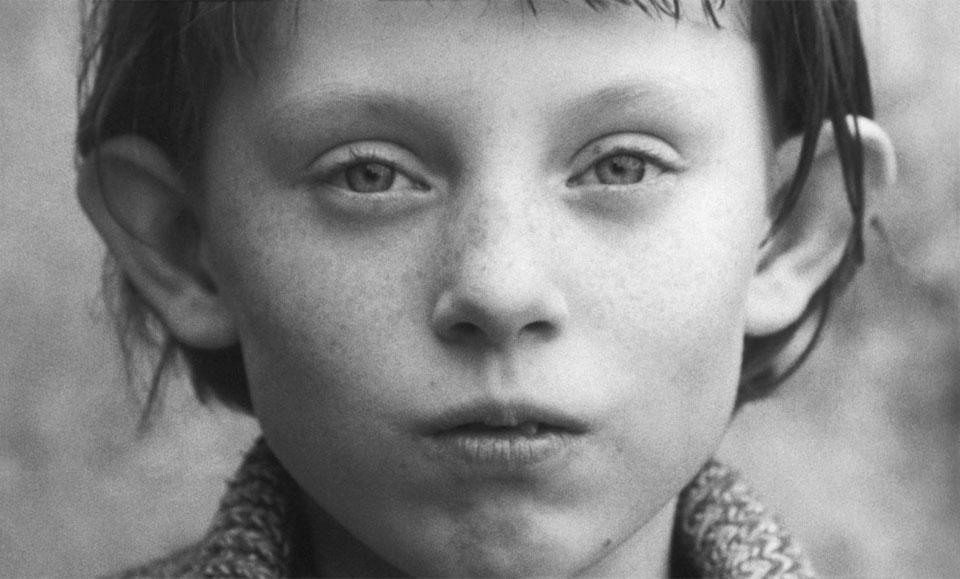
Joining Theo Angelopoulous in the pantheon of those too much for the room would be Hungary’s Bela Tarr. Mention his name even among those who profess to love great international cinema and it is quite likely a stunned glazed look will appear.
The closest he came to an international breakthrough was 2011’s The Turin Horse, his last film to date and, according to him, ever. Like his Greek counterpart, his films are cerebral, explore the darker parts of the human soul and psyche and take their own sweet time in doing so. He also never pandered to public taste. (Unless he changes his mind his filmography includes nine films only.)
For many his magnum opus is Satantango, his epic seven hour study of authority and nihilism and the prevalence of moral chaos in the human soul. Tarr frequently collaborated with Hungarian novelist László Krasznahorkai and this film is adapted from an acclaimed work by the author, but Tarr basically kept the plot and structure of the book and allowed improvisation to help bring a lifelike quality to the proceedings.
The plot, which is told in a non-linear way imitating the cycle of a tango, details the community and personal breakdowns of a small rural village which had attempted a farming collective which has failed. This has left the area in ruins in every possible way. Even those, such as the local doctor, who surely had good and worthwhile lives, have now succumbed to amoral despair.
The film, like Angelopoulous’s work (and the by then dead and great Russian director Andre Tarkovsky) is told in surprisingly few shots with composition and choreography making each one work on an amazingly long range term. Only a master could have created work on this level.
Satantango is absurdly hard to see in many parts of the world (and the length is no help in this regard) but anyone seeking it out will be greatly rewarded. Moreover, it has a growing critical reputation with many placing it among the best film ever made. Tarr now teaches film full time in his native land. Here’s hoping for a change of heart professionally.
27. Trainspotting (1996)
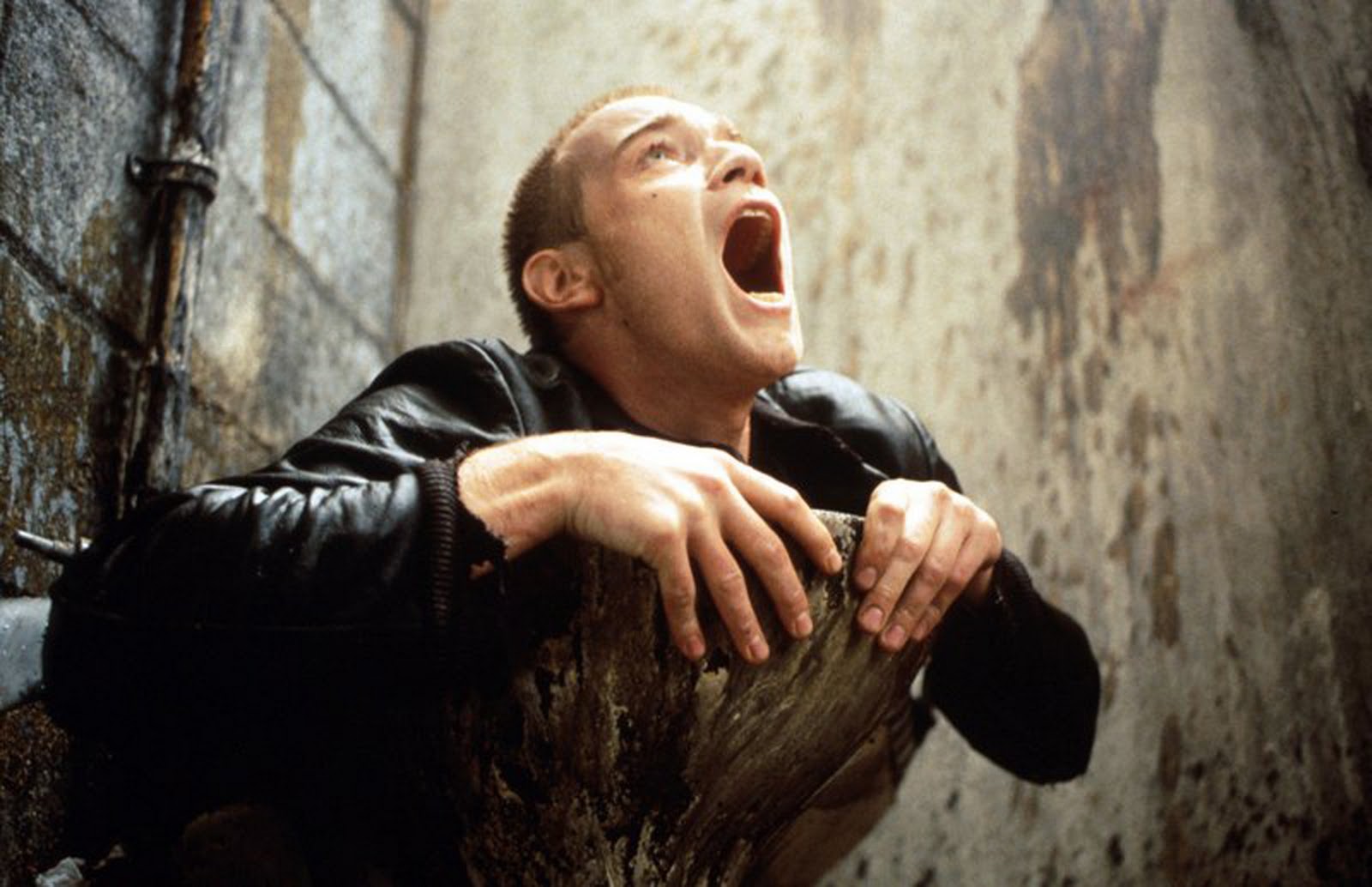
One of the British film industry’s brightest behind the scenes star is director Danny Boyle. An Oscar winner still very much in his prime, Boyle, who started with work in television, came out of the cinema gate ready to show what he could do. His first film, the thriller Shallow Grave in 1994 was a genre treat but he really hit the big time with number two, Trainspotting.
Taken from the much lauded novel by Scottish author Irvine Welch, the film details the pretty bleak lives of a bunch of young Edinburgh drug addicts. The title refers to one of the various ways the group whiles away their hours in the drug numbed haze that constitutes their lives between fixes (and heroin is the drug of choice).
In the course of the film they try to get clean (or, in some cases, refuse to get clean), go back to using, engage in some pretty horrible and horrifying activities, fight, steal, stare AIDS in the face (and some fall victim) and go round and round like a whirlpool.
It’s quite tragic but Boyle often plays for very dark laughs (how many film makers would make a baby who has died due to the neglect of his drug addled mother the subject of even surreal humor?). It doesn’t hurt that he selected an exuberant young cast headed by his Shallow Grave leading man Ewan McGregor (at the start of a star career), Ewen Bremmer, a memorable Johnny Lee Miller and Robert Carlyle, Peter Mullan and Kevin McKidd.
This could have been so depressing (and is, if one stops to think about it) but it often seems like a dark adventure and one a mostly young audience took to its hearts (and the critics agreed). Reportedly Boyle’s next film is a sequel. Given supposedly twenty more years of drug use that film might be a tough sell but Boyle is surely the man to pull it off.
28. Run Lola Run (1998)
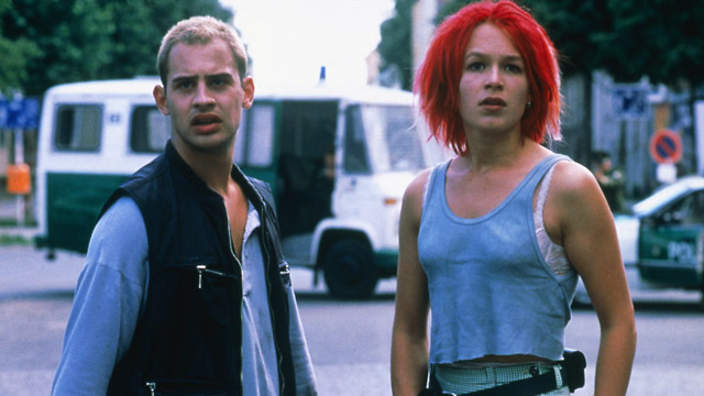
Reunification has been mostly great for Germany but the once dramatically profound and creative German film industry has…well, mellowed out a bit in recent years. One eye catching item was this compact thriller based on the idea of potential alternate realities (films such as Kieslowski’s Blind Chance from 1981 and 1998’s British film Sliding Doors employed similar ideas).
Within 80 minutes of running time, the film follows Lola (Franka Potente) a counter culture young woman in love with Manni (Moritz Bleibtreu), a minor criminal indeed who has managed to lose 10,000 marks belonging to his ultra-nasty criminal boss and who has 20 minutes before the boss arrives and kills him for not having the money. He can’t move outside the space in which he’s located and manages to call Lola to tell her to get the money.
The rest of the film explores three twenty minute scenarios detailing Lola’s desperate attempts to find the money. Her paths are different in each version yet all of them lead to tragedy of some kind. The point is that Lola and Manni are not leading good lives and have entered into a vortex of evil and worthless living. There can be no true happy ending for such bad karma.
The film was the first international effort of Tom Tykwer and he has not had a great international career to date (his major effort after Lola was filming Kieslowski’s screenplay for Heaven in 2002).
However, the film, which was quite popular with the young, hip movie going set in the US, did help to bring the leading lady to international attention (many will recognize her as the female lead in the “Bourne” series of Hollywood action films). No one has ever made a case for Lola being a great film for the intellectual set but it is stylish and exciting and has been well remembered since that time.
29. Funny Games (1997)
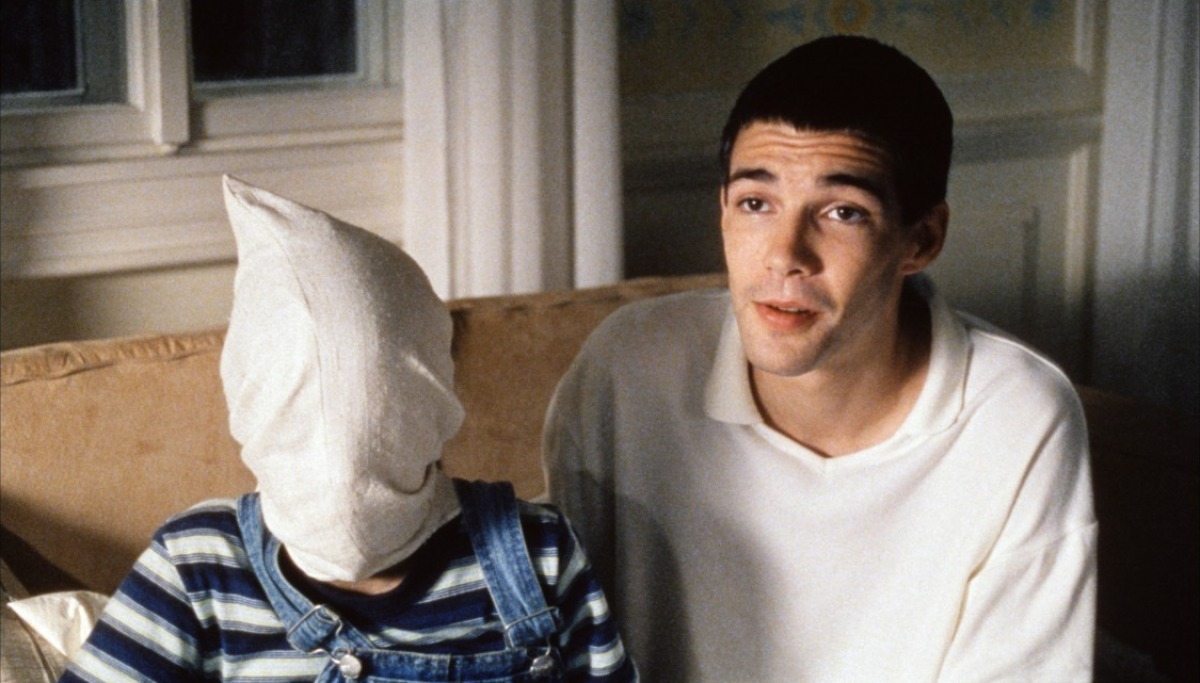
It takes a lot to evoke a visceral response in the modern film going audience. Austrian director Michael Haneke may be proud that he managed it with his first international hit, Funny Games. The film is deliberately elliptical and the director frequently breaks the fourth wall as a distancing device.
The plot has an average middle class family arriving at their summer home. Two young men, strangers to them, are apparently staying with their next door neighbor but something seems very odd about it. It turns out that the pair are highly disturbed and seem to be making a sport of invading people’s homes, torturing the occupants and then killing them.
After imposing themselves on the family (and killing the neighbor) they reveal that they are betting on whether or not the family will still be alive by 9 the next morning. Why are they doing this? Well, why ask why, since no explanation is forthcoming. Haneke is using his characters less as viable human figures than as types and plays with the tropes of the suspense films (at one point a villain is killed only to have his partner bring him back by pushing the rewind button on a remote control).
Many also read into the film’s use of the upper middle class vacation community, a comment on mundane and conventional middle class values (and the look is oddly stylized with the villains dressed in strange white outfits a la A Clockwork Orange). The director-writer had originally wanted to set the film in the US (as a political commentary?) but production costs prevented this. However, the success of the film allowed him to remake the film in the US in 2007.
To be honest, it was truly a twice told tale (though if the original had never existed it surely would have been looked on with more favor). However, Haneke has attained a wonderful, award winning international career since that time with a number of masterful films to his credit. Still, though those films might be judged even better, Funny Games is still his best remembered work.
30. Rosetta (1999)
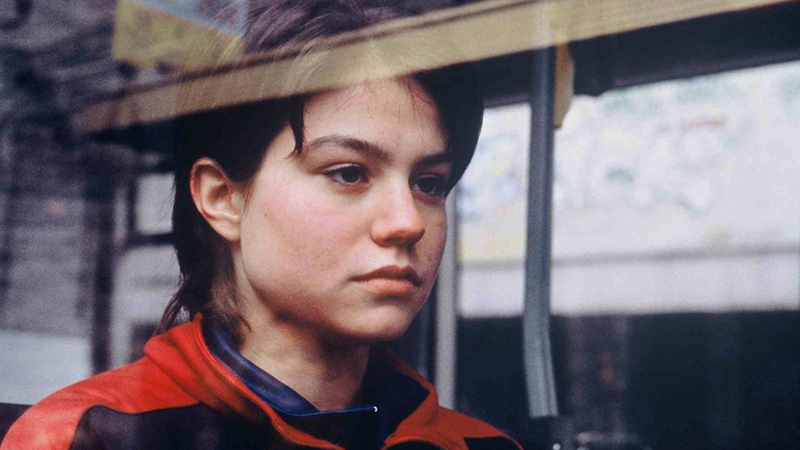
It ends as it began…another European film portrays a young woman caught in a desperate cycle of poverty and malfunction, finding no true way out. Shot and set in Belgium, Rosetta follows the pitiful history of a young girl, trapped in what in the US would be called a trailer park with a hopelessly alcoholic mother, who furiously tries to find a way out snatching at any petty and menial job she can find.
The film opens with Rosetta (Émilie Dequenne) throwing a violent fit and having to be thrown out of the plant where she was working after being told that her probationary period of employment has not ended in her favor.
Despairing of her hopeless life she tries to wedge herself into a rather paltry waffle stand manned by the owner and a young man. She drifts toward a relationship with the young man (Fabrizio Rongione), who is stealing from his employer.
Though she might have a real relationship with the man, Rosetta begins to consider betraying him as a way to benefit herself. Unlike The Match Factory Girl, this film is not at all played for even dark laughs but, rather, is quite gritty and realistic. It faces the sad fact that some people fight to live on scraps and the world isn’t an equal opportunity place.
This award winning effort was the work of film making brothers Jean-Pierre and Luc Dardenne and was their first and biggest international hit (it won the Palm D’OR at Cannes). The film may have also helped to bring out legislature governing young workers needing aid in Belgium. Those the brothers haven’t had as big a hit since, they have had solid careers and continue to make memorable films.
Author Bio: Woodson Hughes is a long-time librarian and an even longer time student/fan of film,cinema and movies. He has supervised and been publicist for three different film socieities over the years. He is married to the lovely Natalie Holden-Hughes, his eternal inspiration and wife of nearly four years.